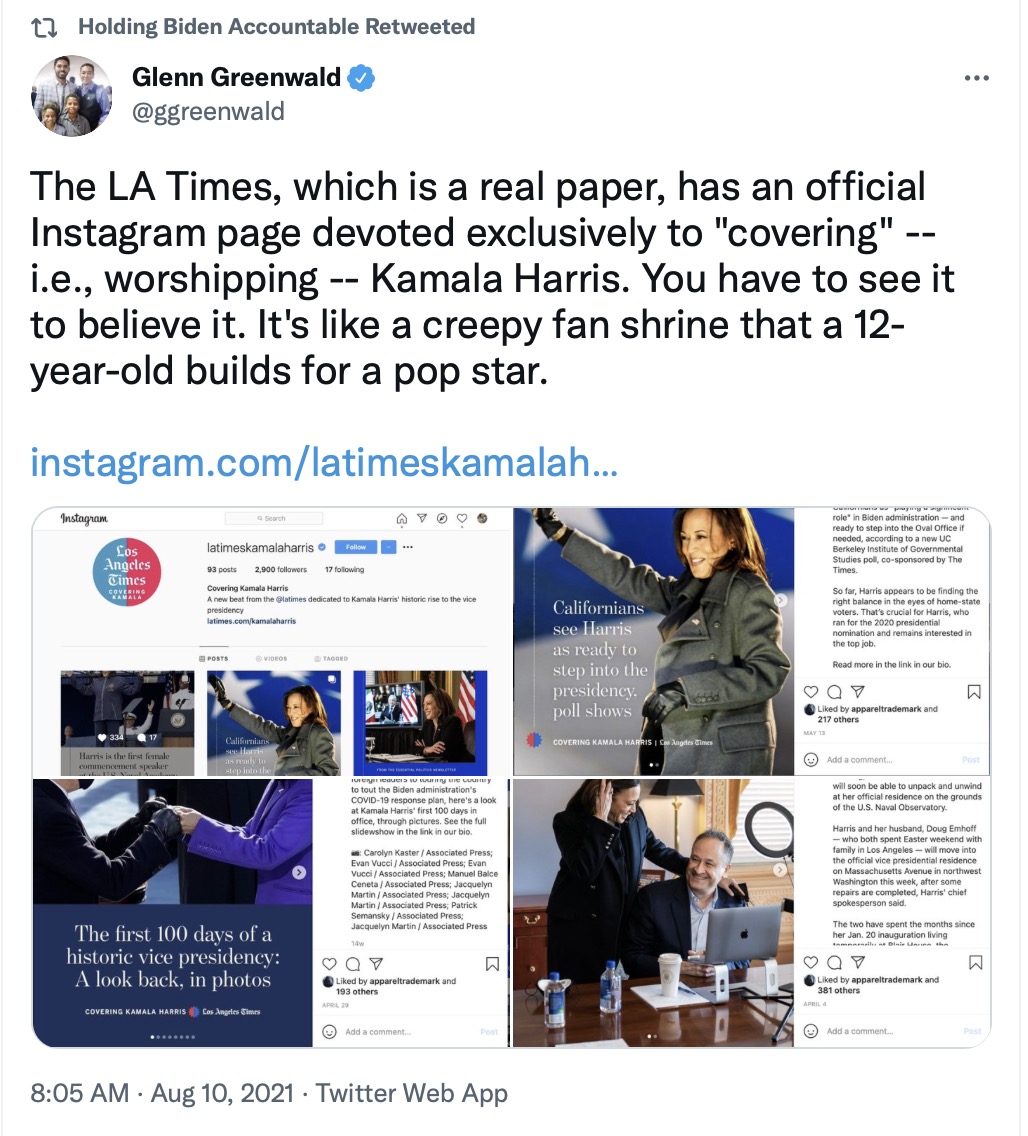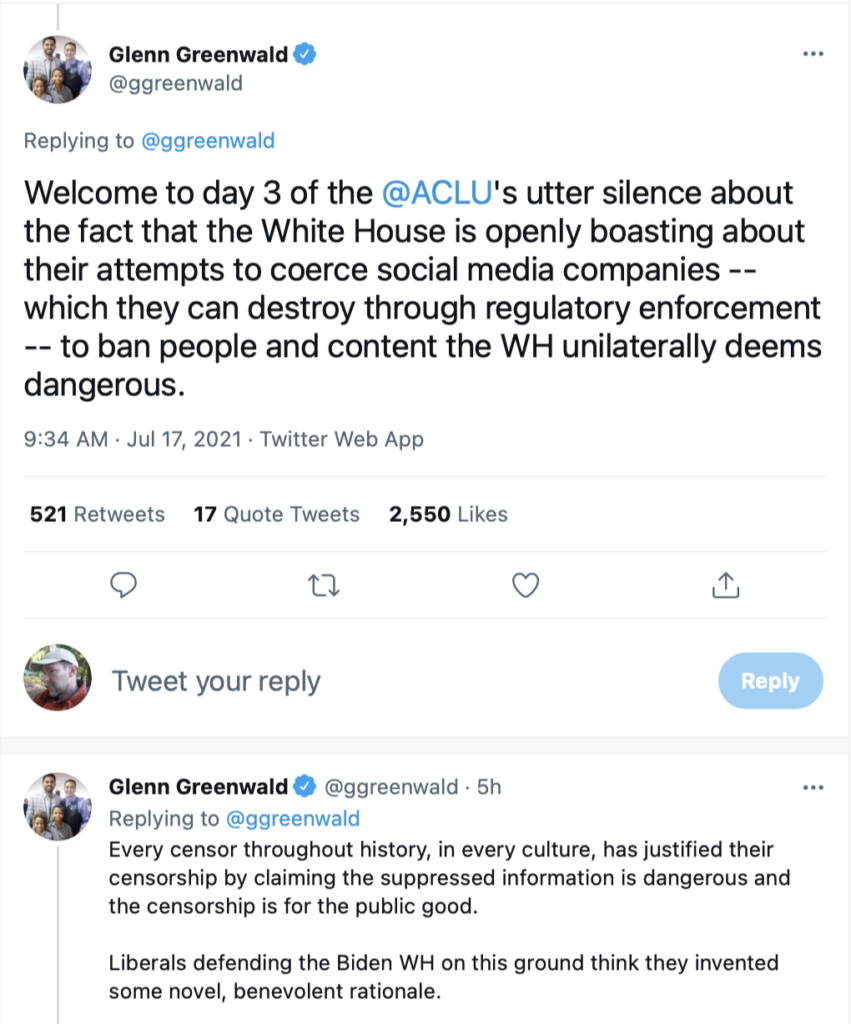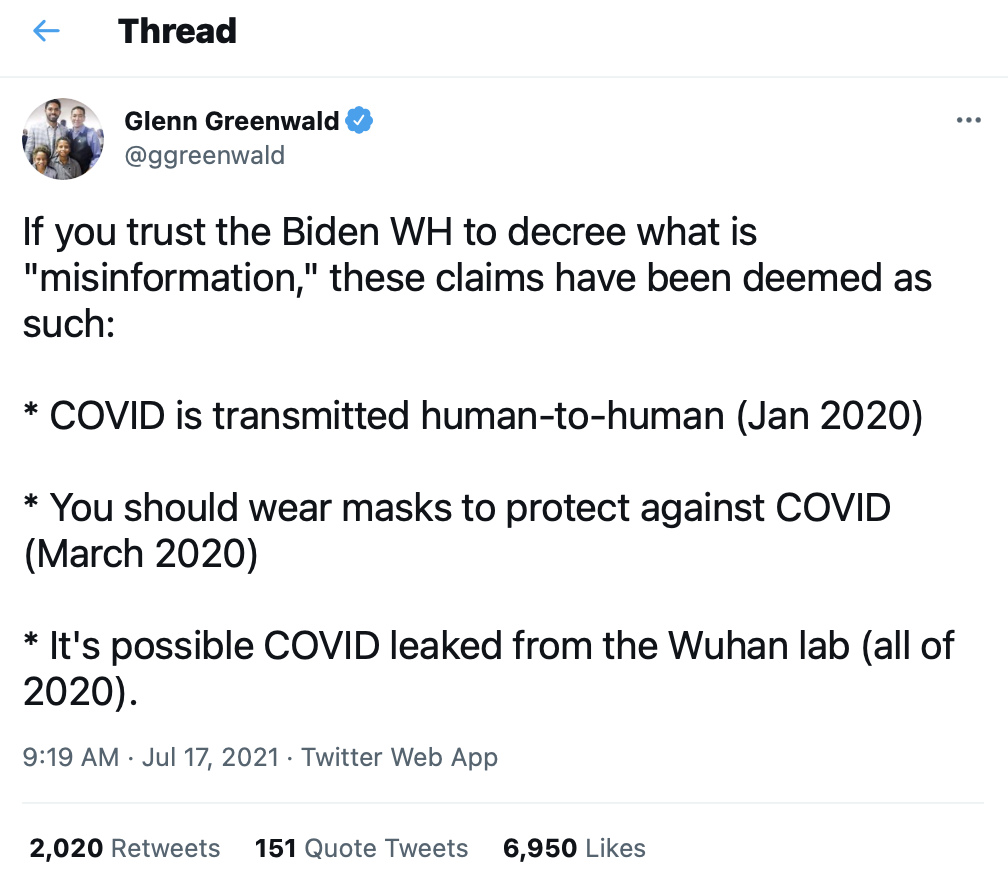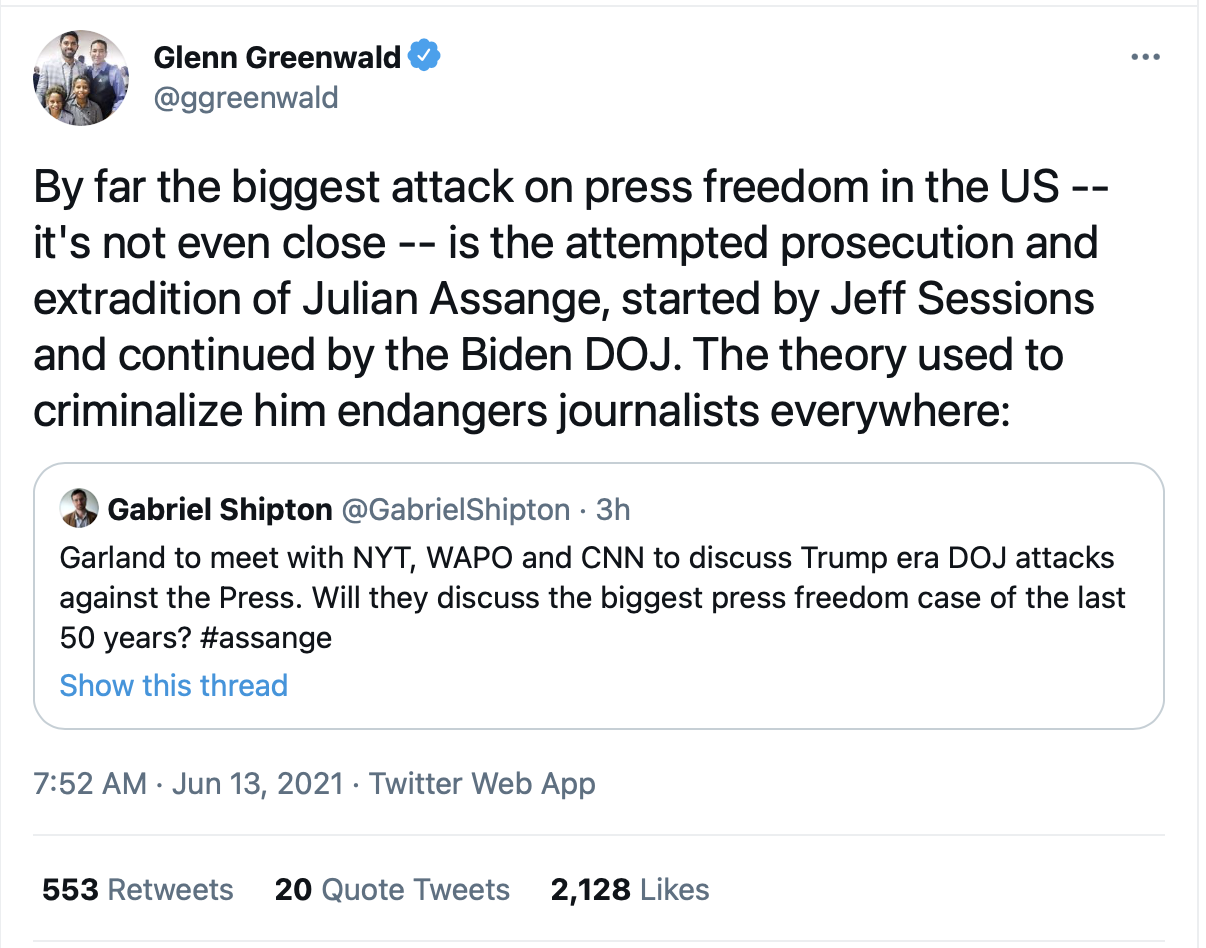Ben Franklin: It’s “a Republic, if you can keep it.”
On September 17, 1787, as delegates left the Constitutional Convention in Independence Hall, Benjamin Franklin was asked what kind of government do we have?
"A Republic," he replied, "if you can keep it."
I am stunned at the willingness of many on the political left to ignore the First Amendment out of convenience when it comes to their favorite issues. As I predicted several days ago, the ACLU has been silent. Many of us who used to fear government censorship are publicly warming up to that idea. In recent days, Glenn Greenwald has commented repeatedly. For example:
Those who remember the recent past the federal government be able to declare and enforce its version of the "truth" re COVID. Here's a few examples:
There is apparently something in the water that is causing Americans to become obtuse, unable to understand their own history, their own government and nuance. Many people who hear my opinions of these topics accuse me of liking it when malevolent and stupid people kill other people by spreading lies about COVID. They think I like it when harmful false ideas are spread through social media. Many of them are proud Americans who wave flags and celebrate the Fourth of July, but they don't understand the function and power of the First Amendment and free speech (the latter of which is a broader issue). It's as though they don't understand that many truths are complex, making them unendingly imperfect and tentative. It's as though they don't understand that by allowing the marketplace of ideas to run its course, we will be in the best position to understand what is going on around us on every topic and every issue. It's as though they want to completely trust a government that excels in spewing out lies, year after year, administration after administration.
Is it too much to ask that Americans understand their own Constitution before willingly shredding parts of it?
The Stunning Lack of News Coverage about Julian Assange
The Biden Administration's continuing prosecution of Julian Assange is not news, for many disheartening reasons (following Glenn Greenwald's links for much more):
John McWhorter Discusses Anti-Racism with Bill Maher
Linguistics Professor John McWhorter sat down with Bill Maher on a recent episode of Real Time to discuss "anti-racism." McWhorter describes himself as someone who is hearing things that don't make sense and his quest is to try to obsessively make sense of things like "anti-racism." The interview was as intense as it was fast-moving. Several take-aways:
A) "Anti-racism" condescends to people who identify as "black," infantilizing them.
B) There is a great diversity of thought among those who identify as black, almost two-thirds of whom are middle class (or even higher earning), the majority of whom do not live in ongoing fear of being harassed or shot by the police,
C) None of this is to suggest that there isn't still racism, which needs to be addressed.
D) Wokeness is a religion where "whiteness" functions as "original sin" that afflicts even babies, a religion where Robin DiAngelo's misguided book, White Fragility is mistakenly being treated as "research" instead of second-rate literature that advocates for victimization;
E) People pretend to "atone" for "white privilege" by posting on FB that they are "doing the work." This solves nothing.
F) White Fragility is not representative of "the general black view of things."
G) There is no one "black view" of things - Also, "'Yes we can't'" has never been the slogan for black America and it's not now."
H) In the religion of Wokeness, advocates pretend that "racism has never been worse" than today, even in the 1960's and even during the 1850's. These are palpable untruths to any person who knows even a tiny bit of history. "Why is it un-black to address degree?"
I) It is childish for anyone to shut down opposing views to protect themselves from never being told that they are wrong. This "cathartic" approach will never change anything. We need meaningful engagement.
J) Social media has everyone "peeing in their pants," afraid to defer even minimally from Woke orthodoxy, which is making "mendacity" ubiquitous.
K) The fear of being honest and the fear to even tell a joke is "becoming almost everywhere. The only exceptions are people who are "weird like us and you don't mind being hated. But most people are not going to have that disease, and so we are stuck where we are."
If you'd like to follow John McWhorter, you can find him on his own Substack Website, It Bears Mentioning. Also, McWhorter often joins Glenn Loury for conversation at The Glenn Show on Patreon.
The Poisonous Online Environment of Gen Z
Abigail Shrier discussed Gen Z with Harold Bursztajn, M.D., a psychiatrist. Bursztajn is concerned about Gen Z and he identifies smart phones and social media as two of the major culprits. How bad is this environment?
This generation seems helpless and hopeless. Why — I asked him — did this generation possess the highest recorded rates of anxiety, depression and suicide—and the lowest rates of sex or physical intimacy? These young Americans may be as radical as Flower Children, but they seem incapable of organizing a Woodstock or hosting a “Love In.” Where was their Kumbaya? What put the damper on their “Good Vibrations”?Bursztajn's conclusions thus mesh well with those of Jonathan Haidt and Tristan Harris, both of whom blame social media for siloed thinking and high rates of anxiety.Based on his thousands of hours administering psychotherapy to university students, Bursztajn believes it is the online life they lead which renders them anxious, unhappy, and emotionally malnourished. Social media trains them to divide humanity into allies and enemies. It offers them little basis for hope. Their online world is not a new-age vista of possibility, but rigid series of high-stakes social contests, in which players rack up “likes” and form alliances, but never actual friendships. “To the extent that you’re dealing with a culture of algorithms, not all things are possible—only the things in the algorithms,” he explained.





